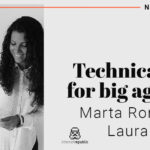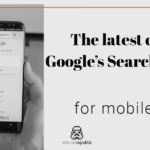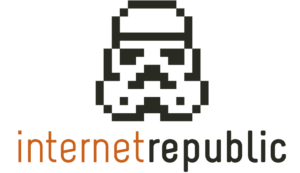
What do E-A-T and YMYL mean?
Although most SEOs are more than familiar with these two terms, we have decided to break down what each of them stands for. In case anyone is still confused.
In 2015 Google provided a full version of its guidelines for assessing search quality, guidelines that help to know and understand how websites can perform better in Google’s algorithm.
Specifically, these two metrics, EAT and YMYL, are of great importance for SEOs.
E-A-T

The abbreviation stands for Expertise, Authoritativeness and Trustworthiness. Thus, according to Google ranking standard, pages with high-quality content have a high level of E-A-T, while those with low-quality content do not.
These guidelines determine the features for high-quality content:
- The content should be broad enough to meet the needs of a user for the unique topic and purpose of a page (general topics require more information than restricted ones, for example).
- The page and its associated content should be written by an expert, authoritative and reliable for the subject matter.
- The website has a positive reputation for its content.
- The website presents sufficient supporting information, e.g., “about us”, “contact” or “customer service” pages information.
- The website has complementary content that enhances the user experience of a web page.
- The site is designed in a functional way that allows users to locate the information they want with ease.
- The website is regularly and frequently maintained and edited.
One of the most important aspects of this list is the concept of E-A-T. E-A-T has a direct effect on both the level of quality of the page and its reputation. To be considered high quality, Google states that “websites need sufficient expertise to be authoritative and trustworthy in their subject matter”.
However, it should be noted that what comprises “Expert” content may vary according to the type and purpose of a page.
For example, while a reputable doctor must write high-level medical advice to be considered “expert” content, general information provided in medical support forums may be considered “expert”, even if written by a non-specialist reader. Some topics require fewer formal levels of expertise and, for these pages, Google is looking at how useful and detailed the information provided is.
For example, this would be the case for product and restaurant reviews and information on fashion or humour sites. Google makes it clear that there are many types of “daily experiences” and that a site will not be penalised for not having expertise in a particular field if there is no need for it.
Google makes it clear, however, that some sites must have content written by qualified and accredited experts such as medical information sites, financial advice or any other topic that could potentially harm a person’s health, happiness, or wealth.
When it comes to E-A-T, the bottom line is that some sites require higher levels of formal expertise, while others require “everyday expertise”. To determine which is which, content creators and marketers need to think about how much knowledge is needed for the website to deliver useful, helpful, and detailed content.
Precisely with this in mind, we talk about YMYL.
YMYL: “YOUR MONEY OR YOUR LIFE”

YMYL responds to the quality rating of websites that are important enough that if they have low-quality content, they can harm people’s lives, income, or happiness.
Thus, Google requires these pages to be written by experts. As mentioned above, these pages would deal with financial transactions, medical information, legal information on children’s issues, divorce, wills, pages related to law and citizenship, etc.
When it comes to these pages, Google has much higher page quality rating standards. Google would try to protect users from pages with low-quality content that does not possess the required levels of E-A-T.
The websites dedicated to hobbies, such as music, photography, or other highly technical activities, must also have an established level of expertise involved.
Artículos relacionados
Leticia Madrigal
Latest posts by Leticia Madrigal (see all)
- What do E-A-T and YMYL mean? - 21 August, 2018






